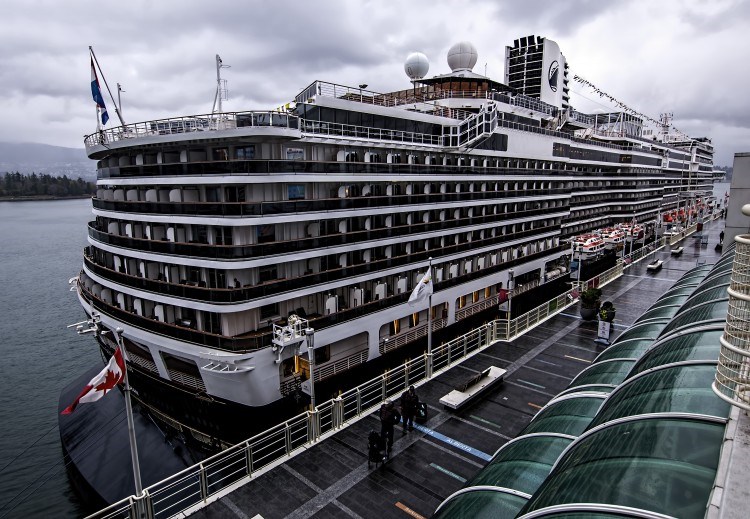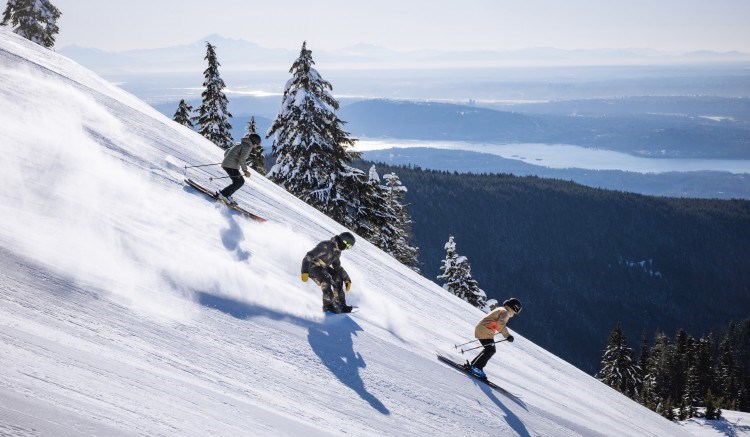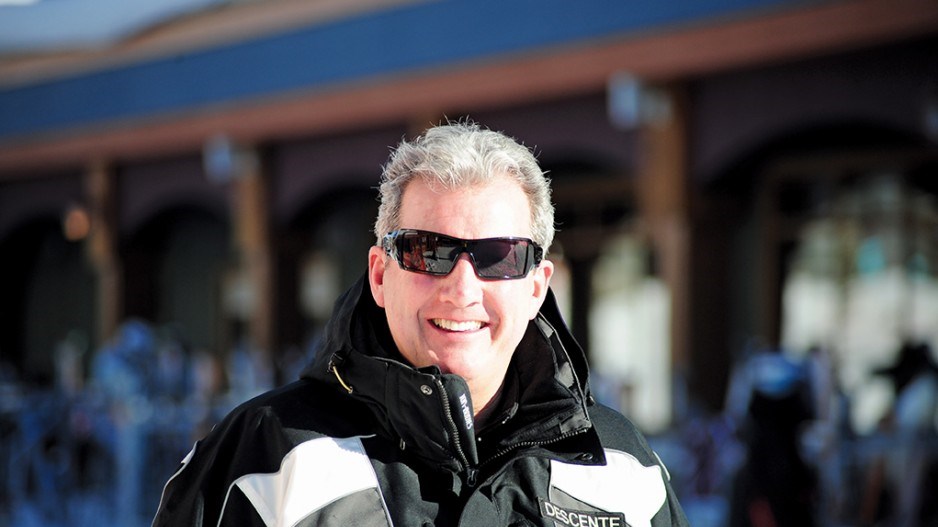B.C. tourism businesses have been having a banner 2023, with many returning to activity levels near, or sometimes above, what they saw before the COVID-19 pandemic.
There is optimism that this will continue through the winter.
One industry fear, however, is that travellers have run out of savings that they accumulated during the pandemic, and are now pressured with interest rates at a 22-year-high and the lingering effects of a year and a half of high inflation.
Tourism and hospitality business owners have also been under pressure, with some saying they are close to going out of business.
If the higher cost of living prompts visitors to cut discretionary spending, some could forego vacations, say industry insiders.
That would put even more stress on tourism and hospitality businesses that are barely breaking even.
So far, foreign visitors have been steadily returning.
B.C. welcomed 5,540,019 international visitors in the first eight months of 2023 through its entry points, up 61.2 per cent from 3,436,675 such visitors in the same months of 2022, according to Statistics Canada.
That visitor volume, however, remains down by more than 11.4 per cent from the 6,256,155 international visitors who visited Canada through B.C. entry points in the first eight months of 2019.
American visitors have returned faster than other international visitors.
. That compares with August 2019, when less than 74 per cent of those visitors were American.
Asian visitors have been particularly slow to return, with only 67,690 people from Asian countries entering Canada through B.C. in August, which is the last month for which data is available.
That number of Asian visitors is down by more than 51 per cent, from the 138,155 Asian visitors who entered Canada through B.C. in August 2019.
The likely obstacle to their return is that . Vancouver Airport Authority (VAA) director of air service development Russell Atkinson confirmed to BIV yesterday (Nov. 7) that this situation has not changed in recent months.
Air Canada, in some cases, has been picking up the slack, according to that airline's first-quarter earnings, which were released Oct. 30.
Canada's national carrier saw profit soar to $1.25 billion in the quarter that ended Sept. 30, up from a loss of about $500,000 in the same quarter last year.
Other airlines, such as Air France-KLM, similarly announced soaring profit in recent earnings reports.
Data from the VAA depicts similar trends earlier this year to those revealed by Air Canada and Statistics Canada.
Looking forward, the VAA expects traffic to soon exceed levels from before the pandemic.
The airport authority told BIV that thanks to airlines flying larger planes and planes that are more filled.
The VAA anticipates 4,289,753 passengers to board or disembark flights at YVR between Dec. 22 and Feb. 27, up more than 1.6 per cent from the 4,220,317 such passengers during those same dates in the 2019-2020 winter season, it told BIV in an email.
Despite more passengers, the VAA only expects 39,479 flights at YVR during that time, down about 10.7 per cent from the same dates in the 2019-2020 winter season.
"Obviously, the planes are fuller than before," Air Canada's managing director for international sales planning Timothy Liu told BIV.
"Depending on the destination, we're putting on some of the larger aircraft."
Airlines expand winter service
Airlines are increasing service out of YVR this winter.
Flair Airlines launched daily non-stop flights between Vancouver and Cancun on Oct. 29 – the first such flights in that airline's history.
Flair also plans to increase service from YVR to Las Vegas and Puerto Vallarta this winter and into next summer. It also , twice weekly starting May 31.
on Oct. 27 – a four-times-per-week route on Dreamliner 787-9 planes that can carry 298 passengers, including 30 in business-class pods.
Liu told BIV that his airline also intends to increase frequency on its route between YVR and Hong Kong – to 11 times per week, up from daily flights currently.
Some "additional capacity" has also been put on the YVR non-stop flights to Tokyo's Narita International Airport, he said.
Air Canada plans to have seasonal non-stop flights to Bangkok between December and April, which is a slightly longer season than in the inaugural year for that route last year, which was between December and March 26, Liu said. , but then cut the season short.
His airline then starting April 3.
This is the .
Fiji Airways' regional general manager for the Americas, Stroebel Bekker told BIV that . That airline is also increasing its frequency to Vancouver to three times per week, up from twice per week, in December and January, Bekker said.
Cruise sector and conferences help increase tourism
Earlier this year, the cruise industry was a tailwind, helping the tourism sector regain its pre-COVID-19 footing.
, according to the Vancouver Fraser Port Authority (VFPA).

The previous record for cruise passengers in a year was 1.1 million, set in 2019, according to its data.
The VFPA told BIV that it expects 2024’s cruise season to be about as strong as the one this year.
Destination Vancouver CEO Royce Chwin told BIV that large conferences have also helped the city's tourism business so far in 2023.
He said there have been 31 conferences with more than 1,000 out-of-town attendees in Vancouver as of mid-October. That is up by three or four from 2019, he said.
“I think we’ll have a solid year in 2024 but pandemic debt is coming home to roost,” Chwin said. “That is going to impact disposable income, whether you are a domestic or an international visitor.”
Tourism operators are also in many cases burdened with debt and have been lobbying the federal government to extend by a year the repayment period for interest-free Canada Emergency Business Account (CEBA) loans provided during the pandemic.
Canada's premiers last month sided with the small-business owners by signing a letter to the federal government urging Ottawa to give them more time to repay loans.
“Just when many small businesses are starting to find their feet after the pandemic, they’re now being walloped by rising inflation and interest rates,” B.C. Premier David Eby told media in a statement.
“That’s why I’m joining other premiers in asking the federal government to give small businesses a chance to recover with more time to qualify for loan forgiveness and by extending CEBA loan repayments for another year.”
B.C.’s ski resorts see strong season-pass sales
Ski hill operators tend to be optimistic that they will welcome large numbers of international visitors, but they share Chwin’s concern that visitors to B.C. could cut back on spending.
“We have seen a little bit of a dip in our pre-bookings from international guests, and I think that's primarily driven by international airfare costs, and the availability of access,” Sun Peaks Resort chief marketing officer Aidan Kelly told BIV.

Getting to Sun Peaks for some international visitors requires flying into Vancouver and then taking an additional flight to the B.C. interior. With flight costs rising, those extra flights can deter some people, he explained.
Kelly added that Sun Peaks’ season-pass sales overall have been “strong,” particularly from locals and or those who bought passes at the $1,229 early-bird price.
Sun Peaks saw a spike in season-pass sales for the 2021 season but sales in each subsequent year have been relatively flat, he said.
Big White Ski Resort Ltd. senior vice-president Michael Ballingall told BIV “tens of thousands” of skiers bought season passes for his mountain by Oct. 15 in order to get his resort’s $959 early-bird price. The price for those yearly passes then increased by $100.
Approximately 95 per cent of Big White’s season-pass holders buy their passes at early-bird pricing, Ballingall said to explain why he thinks he has a good sense of how busy his mountain will be this winter.
The total number of season-pass holders at Big White is down by a few percentage points from last year, which saw a record-high number of season-pass holders, according to Ballingall.
He said the slight decline in sales may have been because some local skiers decided to take winter vacations to sun destinations instead of buying ski passes.
Some optimism for the resort is that bookings for nights in the 400 homes that Big White manages as part of a rental pool is up by about 11 per cent, compared with last year, Ballingall added.
Grouse Mountain does not reveal exact figures for its season-ticket sales but “sales are strong,” spokeswoman Madelaine Twomey told BIV.
“We’re looking forward to even more people trying out the newest lift on the mountain,” she said.
Grouse Mountain . Skiiers grab onto the handle-tow lift, which travels at a maximum speed of two metres per second and is 250-metres long.
The new equipment means that the skiers do not need to use the Screaming Eagle chairlift.
B.C.’s largest ski resort, Whistler Blackcomb does not reveal how many season passes it sells. It directed BIV to comments that its owner, Vail Resorts Inc. (NYSE:MTN), made in September after releasing quarterly earnings.
Vail said that pass sales at the 37 destination resorts and regional ski areas that it owns or operates were up seven per cent in units, and 11 per cent in dollars as of Sept. 22, compared with the same period last year.
The “strong loyalty among its pass holders, with particularly strong pass sales growth from renewing pass holders, while also growing sales among new pass holders.”
Tourism Whistler spokeswoman Lauren Everest told BIV that she expects tourism in her village to be relatively flat, compared with last year, with proportionally more domestic tourists than the resort welcomed pre-pandemic.
"There are there are a number of events that take place in Whistler over the winter season," she said.
Visitors are expected to flock to the village for things such as the:
• Whistler Film Festival Nov. 29 through Dec. 3;
• Eberspächer Luge World Cup Whistler Dec. 15 and Dec. 16; and
• Whistler Pride and Ski Festival Jan. 21 through Jan. 28.
"We have the Arc'Teryx Backcountry Academy, which is returning to Whistler in February," she said. "That is more of a niche event that focuses on backcountry skiing and snowboarding education."






